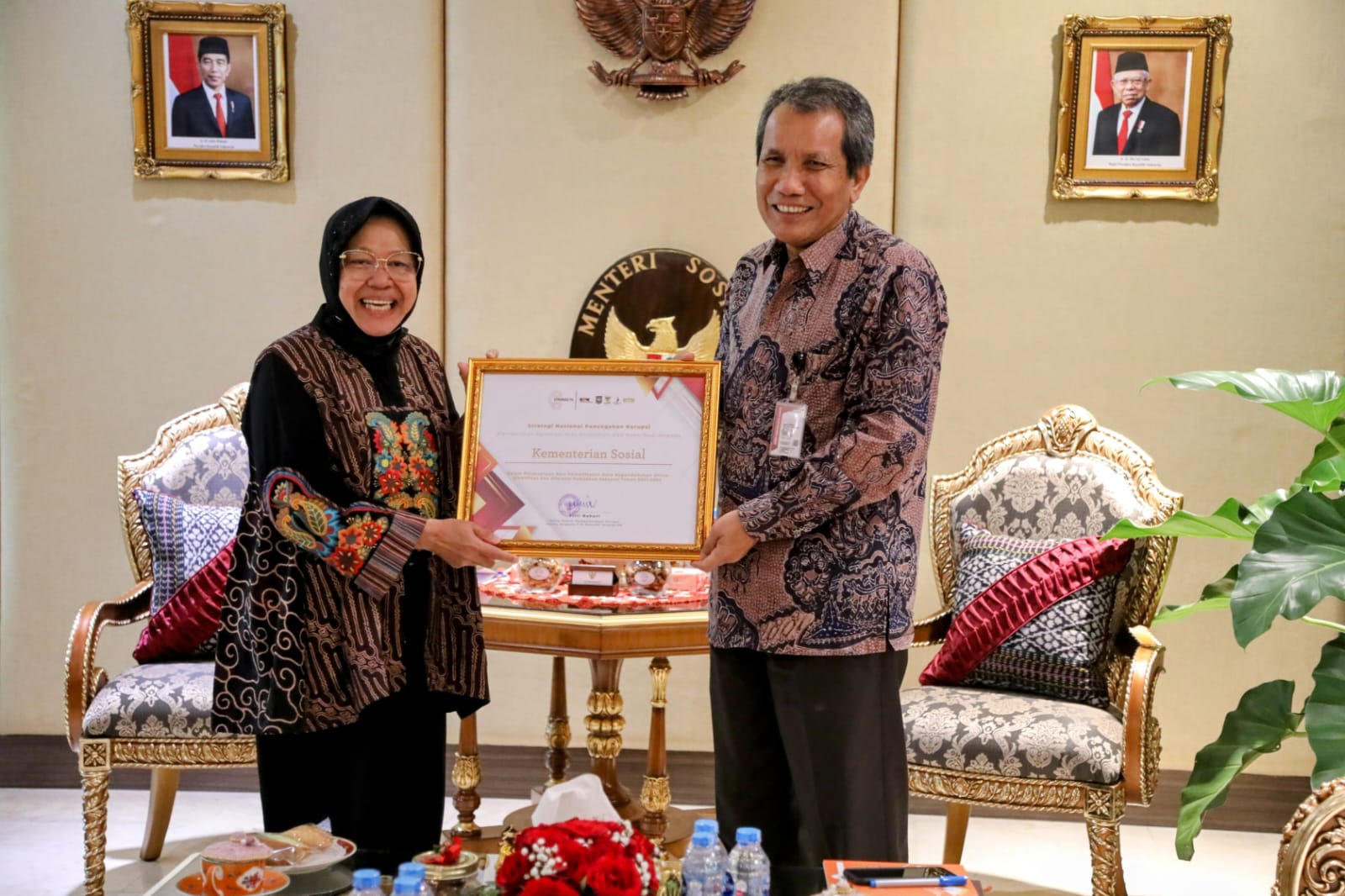National Identity Number Based on Social Assistance Data, Pahala Nainggolan Appreciates MoSA

JAKARTA,
WEDNESDAY (June 14th, 2023) – Deputy of Prevention and Monitoring of
Corruption Eradication Commission (KPK) and also National Strategy of
Corruption Prevention Implementation Coordinator (Stranas PK), Pahala
Nainggolan, appreciated the Ministry of Social Affairs. He thought that from 76
Ministries/Institutions, Ministry of Social Affairs has a good action plan
achievement for corruption prevention by utilizing National Identity Number
(NIK).
Pahala Nainggolan
expresed his appreciation to Minister of Social Affairs, Tri Rismaharini, in a
meeting held recently. “Ministry of Social Affairs has utilized the population
data in distributing social assistance to be effective and right on target. We
think that Ministry of Social Affairs’ achievement is good,” Pahala said.
He said that the
working model of Stranas PK is the establishment of the action plan. This
should be done by Ministries listed in the action plan. According to Pahala,
from the 76 Ministries/Institution, Ministry of Social
Affairs has a good action plan achievement for corruption prevention by
utilizing NIK.
The anti
corruption institution thought that Ministry of Social Affairs takes a real
step by utilizing population data for sectoral policy of 2021-2022’s
effectiveness and efficiency. “This is an award for the ministry that
contributes actively and responsively towards the action plan. The action plan
made by Ministry of Social Affairs is by utilizing or making use of National
Identity Number,” Pahala said to the press.
Score given by KPK
to Ministry of Social Affairs for social assistance distribution is 98, and 100
for Contributions Beneficiary - National Health Insurance (PBI-JKN)
Freezing The Data
A good adherence
from the Ministry of Social Affairs towards Stranas PK gives good result.
10.249 family beneficiaries of basic food/Non-Cash Food Assistance Program
assistance are detected through Common Law Administration (AHU) Directorate
General of Coordinating Ministry for Political, Legal, and Security Affairs
(Kemenkumham). The data are known to be beneficiaries, and some of them are
directors or certain officials in some companies.
“If we check the
database, they are poor. They work as cleaning service workers. They are
registered as administrators or officials in the company (in AHU system).
However, in reality, they are poor,” Minister Risma said.
For this Supreme
Audit Agency’s finding, Ministry of Social Affairs has frozen the data and
deleted them from Integrated Social Welfare Data (DTKS). Data suspension is a
follow up of the Supreme Audit Agency’s finding after synchronizing family
beneficiaries’ data in basic food/Non-Cash Food Assistance Program assistance
data by name, by address (BNBA) with the data in the system of Common Law
Administration (AHU) Directorate General of Coordinating Ministry for
Political, Legal, and Security Affairs.
“We decided to
give shock therapy. We will stop distributing the assistance. If they want to
complain and say that they are poor, they are welcome to come to us. We will
evaluate them,” Minister of Social Affairs said.
The Minister of
Social Affairs has met the Minister of Coordinating Ministry for Political,
Legal, and Security Affairs, Yasonna H. Laoly, to discuss this matter so that
they will be able to have the data rechecked.
“I hope that all
parties giving Family Beneficiaries data will check them in detail and
thoroughly before submitting the data to the Common Law Administration (AHU)
system,” Minister Risma said.
In addition,
Minister of Social Affairs invited law enforcement officers and universities to
discuss the matter. “So that everyone can take responsibility for what they
do,” she said.
Regional
government plays a role in Integrated Social Welfare Data improvement so that
social assistance distribution will be right on target. Laws No. 13 of 2011 on
Poverty Reduction Management sets the role of regional government in updating
poverty data.
According to Laws No. 13 of 2011, the process begins with village
council or neighborhood ward council, then moves gradually to the higher
level,” the Minister said. Regional governments and the officials until
village/neighborhood ward level have full authority in determining who
deserves to get social assistance and who doesn’t.
 English
English
 Bahasa
Bahasa
